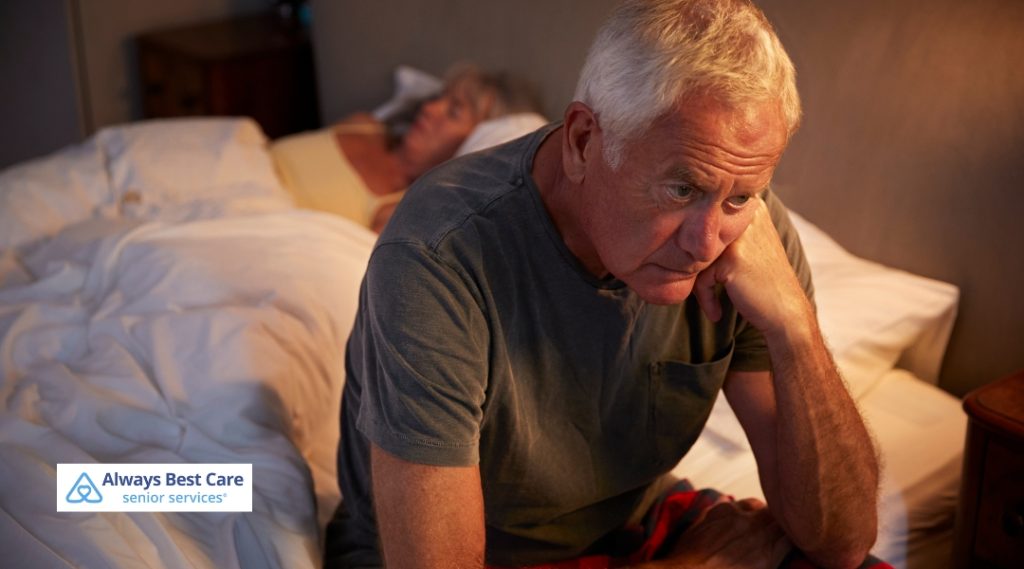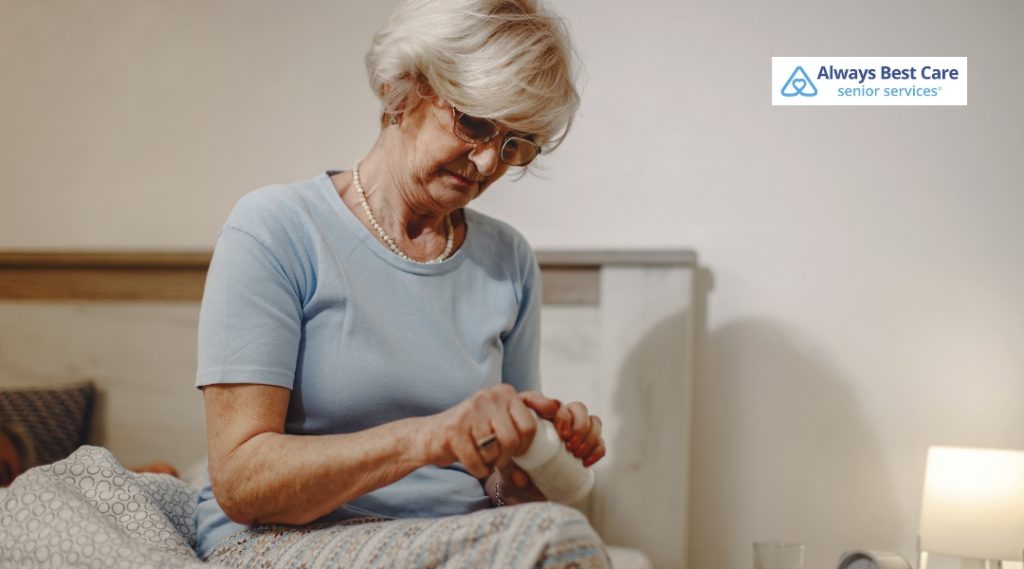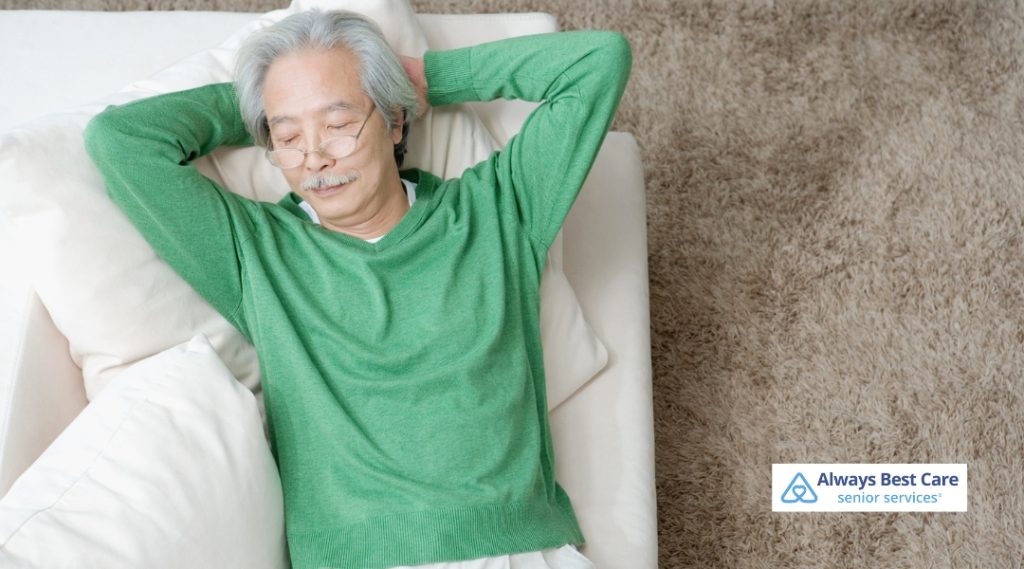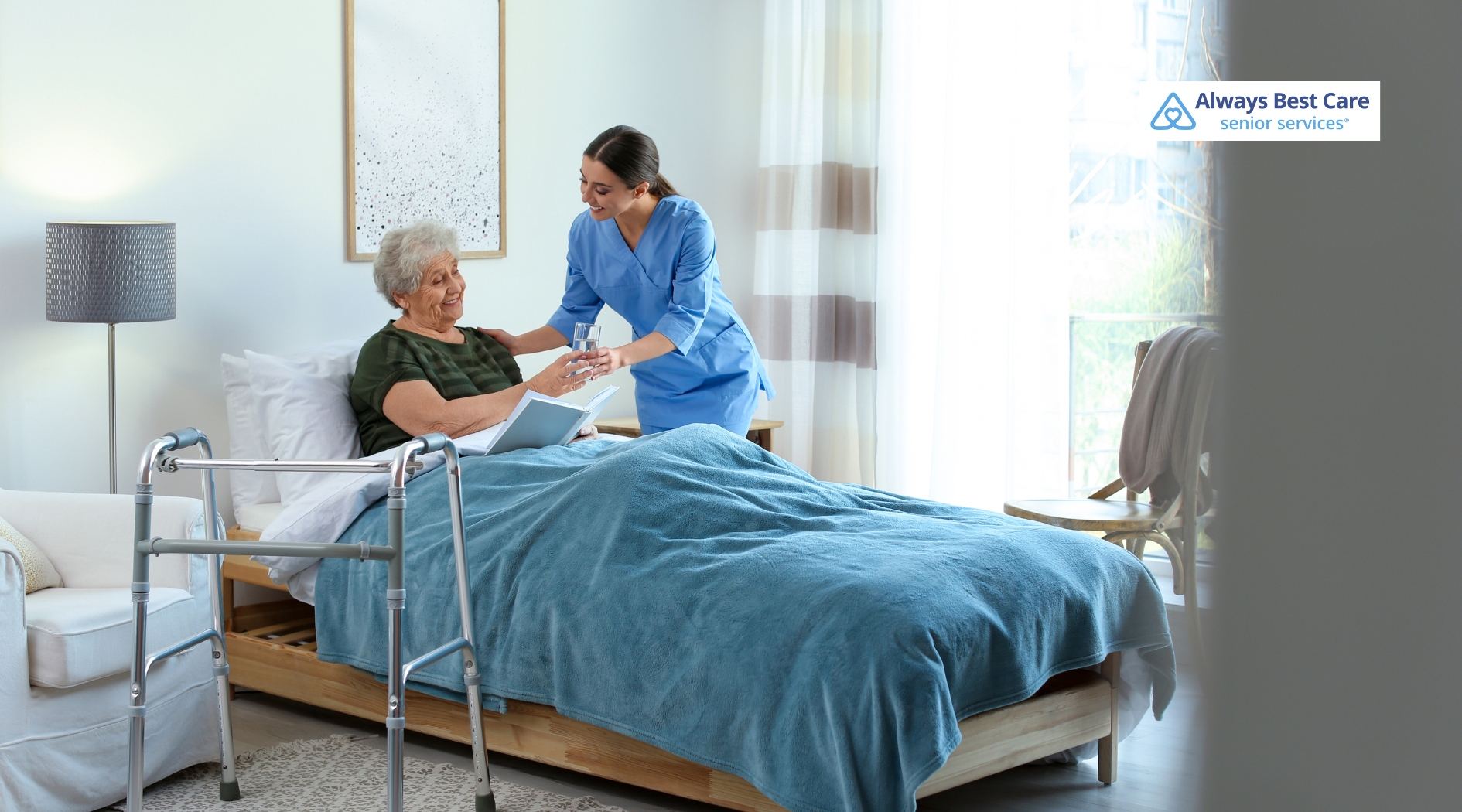Senior Sleep Made Easy: How to Overcome Insomnia in Princeton, NJ

Getting a good night’s sleep is something everyone craves, but for many seniors in Princeton, NJ, it can seem like an impossible task. Tossing and turning, waking up every few hours—insomnia is all too common for older adults.
The good news is that there are practical ways to manage it and get back to better sleep.
In this article, we’ll break down the causes of insomnia, how it impacts seniors, and what steps can be taken to finally get a restful night.
Table of Contents
Common Causes of Insomnia in Seniors
Age itself can bring about changes in sleep patterns. As we get older, we tend to spend less time in the deeper stages of sleep, which can leave us feeling groggy the next day.
But that’s not all. There are also physical conditions like arthritis, diabetes, and heart disease that can make it harder to sleep.
Medications, too, play a role. Many common prescriptions, like those for blood pressure or pain relief, can mess with your sleep cycle.
And, of course, lifestyle factors such as stress, poor diet, or lack of exercise don’t help either.

How Insomnia Affects Seniors in Princeton, NJ
Chronic sleep issues can affect cognitive function, making it harder to concentrate or remember things. It can also lead to mood changes—think irritability or feelings of depression.
Over time, lack of sleep can even affect physical health, increasing the risk of falls or accidents.
How to Create a Senior-Friendly Sleep Environment
- Keep the room cool, dark, and quiet: Use blackout curtains to block outside light and consider a white noise machine to drown out disruptive sounds.
- Invest in a comfortable mattress and pillows: A supportive mattress and neck pillows that promote proper alignment can make a big difference in sleep quality.
- Declutter the room: A clean, organized bedroom creates a calming atmosphere and reduces stress before bedtime.

4 Lifestyle Changes That Promote Better Sleep
Good sleep habits are just as important as a comfortable sleep environment. Incorporating the following changes into your routine can help ensure better rest:
- Stick to a regular sleep schedule: Going to bed and waking up at the same time daily helps regulate your body’s internal clock.
- Get moving during the day: Exercise boosts sleep quality, but avoid heavy exercise right before bed.
- Cut back on naps: Long naps during the day can interfere with your ability to sleep at night. Try limiting naps to 20-30 minutes.
- Limit screen time before bed: The blue light from phones, tablets, and TVs can affect your sleep. Try turning off electronic devices at least an hour before bed.
Dietary Habits That Support Better Sleep
What you eat can directly impact your sleep quality. Here are a few foods and habits to incorporate into your evening routine for better rest:
- Avoid heavy meals before bedtime: Large or spicy meals can cause indigestion and disrupt sleep.
- Limit caffeine and alcohol: Both caffeine and alcohol can interfere with the body’s ability to fall asleep and stay asleep.
- Sleep-promoting snacks: Foods like bananas, turkey, almonds, and oatmeal contain magnesium and tryptophan, which help the body relax.

When to Seek Professional Help for Insomnia
If insomnia continues despite making lifestyle changes, it might be time to reach out to a professional.
A sleep specialist can help identify the root cause of the issue and suggest treatments, such as cognitive behavioral therapy for insomnia (CBT-I) or medications, when necessary.
FAQs
1. How can I improve my sleep environment?
Make your bedroom cool, dark, and quiet. Invest in a good mattress and pillows, and keep the room clutter-free to create a calming atmosphere.
2. Does exercise help with insomnia?
Yes! Regular exercise can improve sleep quality, but try not to exercise too close to bedtime, as it may energize you instead of helping you wind down.
3. Should I avoid naps?
Short naps (20-30 minutes) are fine, but long naps can interfere with your ability to fall asleep at night.
4. What should I eat before bed to help me sleep?
Try a light snack with foods like nuts, bananas, or turkey, which are known to help the body relax and promote sleep.

Get the Rest You Deserve: Reach Out to Always Best Care for Personalized Support Today!
Insomnia doesn’t have to be a fact of life for seniors in Princeton, NJ. By creating a comfortable sleep environment, adopting healthy sleep habits, and making a few lifestyle changes, it’s possible to overcome sleepless nights and wake up feeling refreshed.
If you or a loved one are struggling with insomnia and need extra support, we are here to help. Contact Always Best Care of Princeton at (609) 455-2886 to schedule a care consultation and learn how our in-home care services can improve your quality of life. A restful night’s sleep is just a call away.





